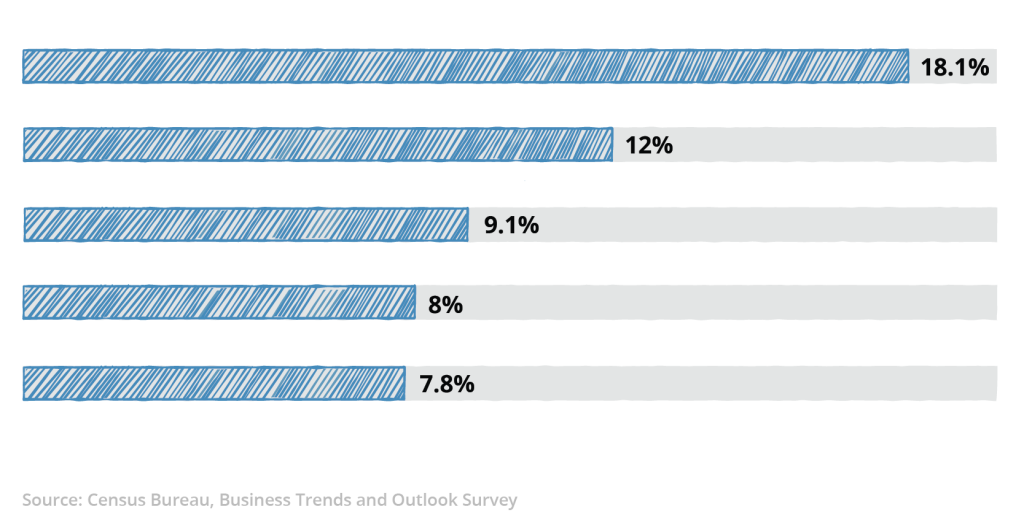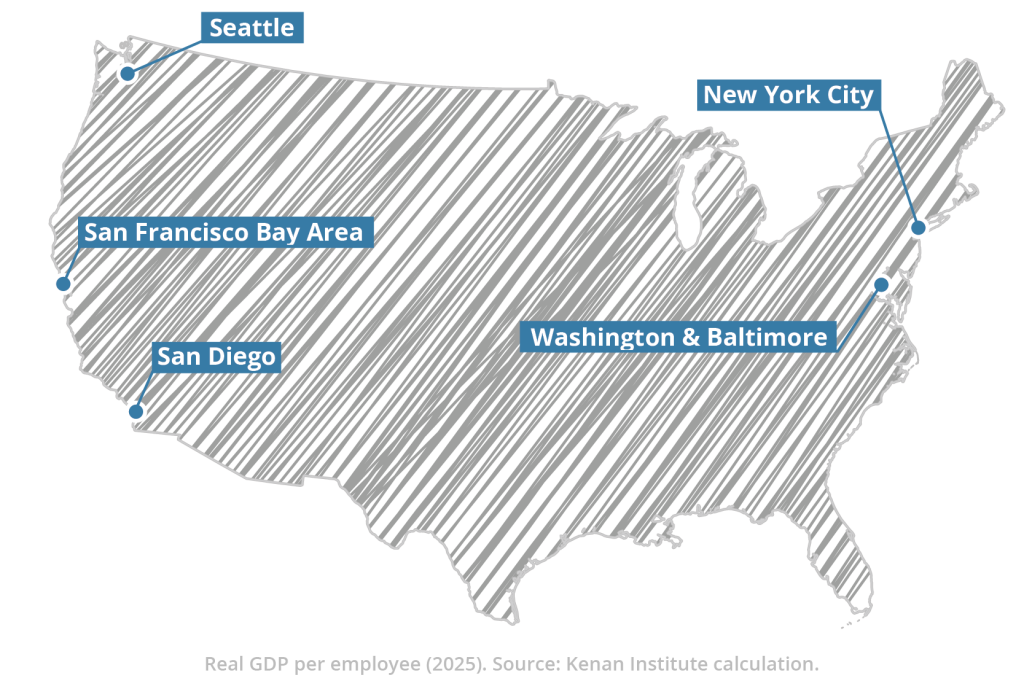AI’s business impact depends on strategy
More than 80% of global employers expect AI to transform their business models by 2025, yet nearly half of today’s core job skills will evolve by 2030. The real disruption? A widening mismatch between employer needs and workforce readiness. How firms respond to this transformation will determine not just competitive advantages but economic resilience.
Changing the jobs, not the workers
Despite rapid innovation, AI has yet to cause sweeping job losses. That’s because most roles consist of diverse tasks, and AI is suited only to some of them. Rather than replacing workers outright, AI is more likely to take over repetitive or routine parts of jobs. That frees people to focus on higher-value work – if businesses plan accordingly.
Share of Firms That Have Adopted AI by Industry


AI is like a teammate that is good at everything but truly expert in nothing, so as a human partner to AI you want to fit in as the expert in something. This arrangement means that people will need to know their own deficiencies and use the AI to help in those areas.
David Deming
Danoff Dean of Harvard College; Isabelle and Scott Black Professor of Political Economy, Harvard Kennedy School; and 2025 Kenan Institute Distinguished Fellow
Ai isn’t just a tool – it’s an employee in disguise
What if businesses managed AI the way they manage people? With thoughtful onboarding, clear performance goals and ethical oversight, AI can become part of the team. Viewing AI as “artificial capital” turns it from a back-end system into a source of long-term value.

WANT PRODUCTIVITY?
START WITH SKILLED TECH TALENT
Cities with the highest share of skilled tech workers are also the most productive. The San Francisco Bay Area, for example, generates nearly double the national economic output per worker. AI adoption amplifies this effect, but only where digitally fluent talent can harness it.
Top Five Productive Extended Metropolitan Areas
